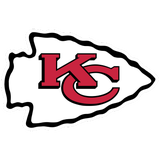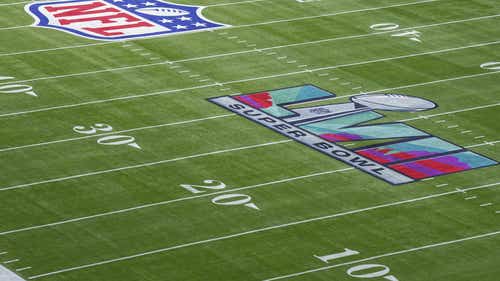
NFL wants players playing, not thinking about roughing the passer penalties

NEW YORK — The NFL doesn't want players worrying about getting flagged or fined.
"You gotta play," NFL football operations chief Troy Vincent said Tuesday at the league's fall meetings. "You hope that no player is thinking about a rule. We want them to play (with a) free mind where you're just free and you play."
Chiefs rookie linebacker Breeland Speaks said he didn't take Tom Brady down because he was concerned about a roughing-the-passer penalty in the fourth quarter of Kansas City's 43-40 loss at New England on Sunday night. Brady eluded Speaks and ran 4 yards for a touchdown to give the Patriots the lead.
"We watched that video and watched that play and Tom did what we've seen Tom do a thousand times," Vincent said.
"He stepped up in the pocket and the defender didn't make a play or didn't create a sack, but you don't want any player thinking about a penalty or being fined but you hope that he would make that adjustment on some of the things we've put in place and that's not just for his opponent's protection but for his as well."
Overall, roughing-the-passer calls are down since the competition committee clarified to game officials the techniques used in such hits during a conference call last month. There were 34 roughing calls through the first three weeks and 19 in the three weeks since the call.
Vincent said the league didn't advise officials to cut down on the calls, but emphasized to them making sure they see it clearly.
"If you don't see the complete play, don't call it," Vincent said. "That was a directive from the competition committee. That was always the point of emphasis but after the (conference) call and after watching the video, the committee and our coaches (said): 'If you don't see the complete play, we ask that you leave the penalty in your pocket.'"
Packers linebacker Clay Matthews was penalized three times in the first three weeks for roughing the passer, including two of which that appeared to be normal tackles. Matthews suggested the league has gone soft and argued that defensive players no longer know what constitutes a legal hit.
Dolphins defensive end William Hayes tore his right ACL trying to avoid landing on Raiders quarterback Derek Carr.
"Every time we emphasized a call, you see more calls in the preseason and first (few) weeks and then you see an adjustment, and a leveling out of calls," said Atlanta Falcons CEO Rich McKay, the head of the league's competition committee. "We're not going to apologize for trying to protect players we think are in a vulnerable state."
Some other things we learned on the first day of the NFL's fall meetings:
MORE FINES THAN FLAGS: There have been only six penalties for illegal use of the helmet, but Vincent said between 10-12 players have been fined for such hits and almost 70 warning letters have been issued to players about using the crown of their helmet to initiate a hit.
"We told officials if they don't see all three elements of it, we can fine it on Monday and we'll get the conducted corrected," McKay said. "I think the players have adjusted, the officials have adjusted and I know the coaches have adjusted."
CONCUSSIONS DOWN: Concussions in preseason were down from 91 to 79, a 13 percent decline. Concussions on kickoffs were zero in the preseason, down from three. Concussions in practices were down from 23 to 9. Jeff Miller, the league's executive vice president of health and safety initiatives, credits a reduction plan the NFL put into place last year, improvements in helmets in part spurred by the league ratings of helmets and banning of some, rules changes such as the "helmet rule" and the kickoff rules, and the education of players.
"We're certainly optimistic about the results," said Dr. Allen Sills, the NFL's medical director. "We'll continue with more in-depth analyses of concussions."
HELMET BAN: Miller said there were some 230 helmets players used in 2017 that ranked in the red area, meaning they were banned for new league players in 2018 and will be banned for every player next season. Through Week 3 of this season, about 40 were still in use that were grandfathered in.
He noted "it's sometimes hard to make a change," but added that players won't have a choice after this season regarding those helmets.
ADVANTAGE, OFFENSE: Teams are scoring more than ever. The number of points (4,489), touchdowns (504) and touchdown passes (328) are the most in league history through six weeks.
McKay credited the performance of young quarterbacks and the emphasis on calling illegal contact and defensive holding penalties. Illegal contact penalties are up from 11 to 36. After six weeks in 2016, there were 30 such calls.
"We didn't like the way it was going last year and it led to passing yardage going down," McKay said. "As defenses get more aggressive and grab more, yards go down."
Vincent said he expects scoring to "normalize" as teams see more film on the young quarterbacks and he noted weather conditions later in the season could make an impact.
"I believe some of the defenses and coordinators will adjust," Vincent said. "Players are adjusting all the time and you just need game footage to see what people can and can't do."
PARITY IS GOOD: Games have been closer through the first six weeks. So far, 54 games have been decided by one score, tied for the most in league history at this point. There have been 28 games decided by three points or fewer, second-most at this point.
"Those are good stats for us because fans want to watch and attend close games," McKay said.










